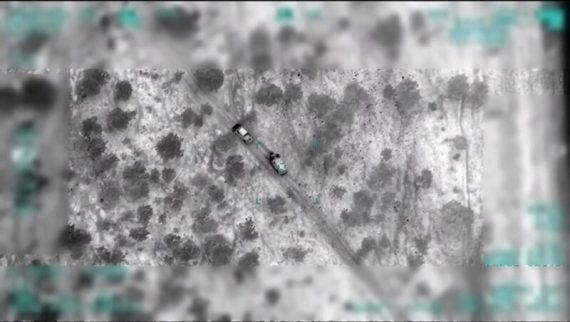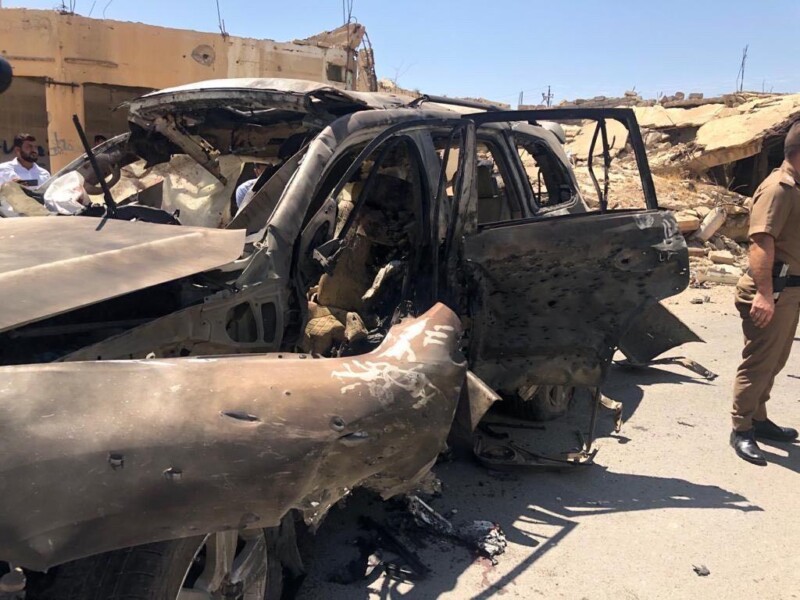L
eadership decapitation is defined as operations that target neutralizing or capturing leaders, and high-raking political or military figures of terrorist organizations. The underlying reason of leadership decapitation is the idea that the leadership cadre of terrorist organizations is the most fundamental element of the organizations’ ideological, discursive, tactical, and operational structure.
Leadership decapitation aims at diminishing the organizational and operational capabilities of terrorist organizations, and thus preventing their ability to carry out any action. These operations also seek to weaken the leadership structures of terrorist organizations and disunite their communication networks.
Intelligence services’ field personnel identify the leadership cadre, including their overall positions and areas of operational responsibility. When the leadership cadre is captured or their command ranks are broken, their operational capabilities are significantly affected; when hierarchy is lost, communication and coordination problems emerge, and distrust ensues.
However, there are critical approaches to leadership decapitation. Some argue that a new leadership can quickly be formed within the organization, allowing its activities to continue. Here, the internal structure of the organization matters as ideologically motivated organizations may resist leadership decapitation more than religiously motivated ones.
The MİT and leadership decapitation
A general assessment of the operations by Turkey’s National Intelligence Service (MİT) in Iraq and Syria reveals a focus on targeting mid- to high-ranking organizational leaders. This intelligence work is based on data collected by field personnel deployed over a wide area of Iraq and Syria. In addition, information passed to the Command Centre is used to conduct UAV/UCAV operations against the leadership cadre of the organization. The main strategy is to disrupt the command ranks, i.e., the hierarchical order of the organization, in order to cause significant losses of qualified personnel and thus maintain a psychological advantage, leading the PKK into a process of dissolution.
In particular, the frequency and nature of operations in the first seven months of 2023 indicate that they are targeting high-level operatives and officials who have been active in the organization for many years. Between January and July 2023, at least 25 mid- to high-level operatives, including members of the PKK’s executive council, intelligence officers, regional special forces, and finance, communications, aviation, logistics, sabotage, and training officers, whose names have been disclosed, were neutralized.
For example, Celal Kaya, codenamed “Hasan,” PKK’s intelligence officer and the mastermind behind the assassination of the diplomat Osman Köse, who was martyred in Iraq, was rendered ineffective by an operation carried out by the MİT in July. Kaya is said to have gathered intelligence and planned actions for attacks on Turkish forces in Iraq and for the kidnapping of Turkish officials.
Abdurrahman Çadırcı, codenamed “Esad Faraşin/Esad Avrupa,” a member of the so-called high-level executive council within the PKK and for whom Interpol has issued a Red Notice, was neutralized by an MİT operation in Syria in June. Çadırcı had been a member of the organization since its foundation and had been involved in its activities in Europe since 2000.
Fehmi Öğmen, codenamed “Sinan Dijvar,” who was one of the so-called senior leaders of the organization and was active in Kandil, had been part of the organization since 1993. It is said that Öğmen, who was monitored by the MİT through its local intelligence network, personally organized numerous activities in Turkey and was rendered ineffective by the MİT in June.
Haydar Demirel, codenamed “Bager Türk,” joined the organization in 1993, was responsible for carrying out actions against military bases in Turkey, and held the responsibility for the Hol province in Syria. Demirel was under MİT surveillance for a long time and was reportedly incapacitated while training PKK/YPG members in May.
A separate mention should be made of an operation carried out by the MİT in May. By infiltrating the PKK’s communication infrastructure, the MİT was able to neutralize Emre Şahin, codenamed “Rodi,” who was in charge of the PKK’s communication infrastructure, and his escort, who had moved to Iraq, causing significant damage to the organization.
Finally, Mehmet Yıldırım, codenamed “Hamza Kobani,” who joined the organization in 1986 and served as the PKK/YPG’s finance officer, was rendered ineffective in March, dealing a significant blow to the organization’s financial and economic wing.
The MİT’s proactive approach and strategy of eliminating terrorism at its source, adopted since 2015, continued in 2023. These multifaceted and multilayered operations target mid- to high-level operatives who play a key role in the command structure and operational capabilities of the organization.
Impact of the MİT operations
The neutralization of leaders leads to a shortage of experienced personnel and gradually weakens the memory of a terrorist organization. Militants without operational capabilities are promoted to higher ranks, which leads to a decrease in the quality of a terrorist organization’s actions and a blunting of its decision-making capabilities.
Leaders of terrorist organizations hide in locations far from the theatre of operations and attempt to maintain communication with other members of the organization by radio, letters, or videos. Gaps in communication lead to disruptions in the chain of command and undermine the authority of senior members. Disrupted communication accelerates the rate of desertion and leads to the surrender of terrorists. The fear of disclosure of their location prevents terrorists from leaving their hideouts, leading to increased autonomy among lower-level members and an erosion of the authority of senior members.
The statements by sources from within the PKK terrorist organization regarding the operations carried out by the MİT and the Turkish Armed Forces in Iraq and Syria in May and June expose the organization’s weakness. The co-presidency of the PKK’s executive council announced the suspension of the unilateral ceasefire it had declared on February 6, 2023, and the decision to carry out terrorist acts.
Recommended
Similarly, terrorist leader Duran Kalkan highlighted the election results and the operations of the Turkish security forces in the region and declared the YPG’s intention to carry out more radical actions. Salih Müslim, co-chairman of the Democratic Union Party (PYD), said that they had moved to a defensive position due to the increased operations and were waiting for the results of the Astana talks on June 21, which focused on Syria.
The leaders of the terrorist organization continue to threaten Turkey rhetorically, but these statements are nothing more than an attempt to react quickly against the Turkish security forces. In the organization’s internal discourse, these statements have no practical foundation. The common point between the statements by the PKK, Duran Kalkan, and Salih Müslim is their call for the support of the international community and the world powers against Turkey. This is a clear indication of their tactical and operational shortcomings which stem from their defensive position in Syria, their retreat to the south in Iraq, and their demoralized mindset.
The fact that more than 70 terrorists have been neutralized by the operations carried out by the MİT and the Turkish Armed Forces in the region since the second week of June paired with the fact that the PKK/YPG has ordered its members to wear civilian clothes instead of military uniforms prove that the organization does not currently have the capacity to respond.






